Tue, 07/29/2014 - 09:49
So, if France is not an anti-Semitic nation, is it an Islamophobic one?
It all began fairly innocuously on Place de la République in the heart of the French capital, with leftwing students, grandparents and activists displaying signs, distributing flyers and proclaiming they were “all Palestinians” while intrepid Parisians did brisk business peddling keffiyehs out of shopping trolleys.
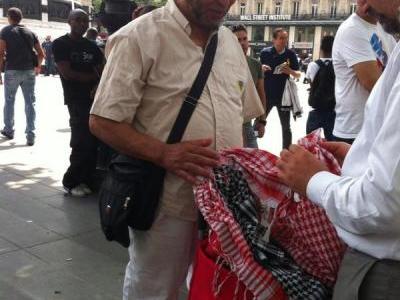
If the decades-old Israeli-Palestinian crisis has a hopelessly familiar pattern, Palestinian solidarity demonstrations across the world have also developed their own cultural markers and conventions.
But this was not London, New York, Berlin, Oslo or Sydney. This was Paris and, as the protesters and phalanxes of policemen in riot gear watching them knew all too well, things could get pretty nasty pretty soon.
Saturday’s protest against the latest deadly Israeli offensive in Gaza was the third banned protest in and around Paris. If past experience was anything to go by, this one too would descend into the usual round of clashes and arrests in a fog of tear gas – followed by the usual banner headlines and spin cycle on the airwaves in the hours and days to come.
This is what happens when Gaza demonstrations are banned in France. An authorized pro-Palestinian demonstration on July 23 saw more than 14,000 people (organizers put the figure at 25,000) marching peacefully through the heart of Paris without incident.
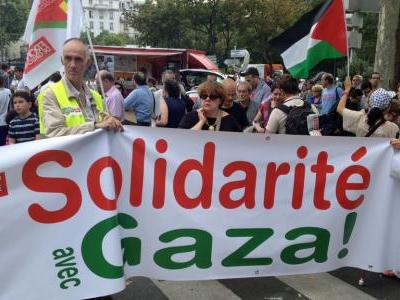
The lesson, if anyone was willing to listen, has been perfectly clear: authorize a protest, secure the route, provide a platform for mainstream groups and citizens to participate and it's likely to unveil in a benevolently feisty, almost festive, French way. Ban it and the moderate groups will stay away, the hardcore fringe elements will hijack the proceedings and provide the images for the next news bulletin.
But French President François Hollande’s administration has stubbornly refused to learn that lesson. And so, with choreographed certainty, Saturday’s Gaza demonstration descended into chaos. As the crowd on Place de la République grew to more than 4,000 people – with no speeches to engage them and nowhere to go – with thousands of police officials blocking the square’s exit points, the rowdies began to take over.
A group of youths, not the kind most readers would take home to dinner, climbed the statue at the center of the square and proceeded to make themselves the only show in town. Smoke flares in the colors of the Palestinian flag drew cheers from the crowd, an Israeli flag was burned to loud boos.
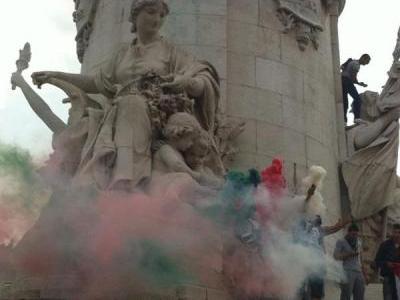
Flags of various nations – Algeria, France, Egypt, Turkey, Iraq – were waved. But there was also one disturbing Salafi-Takfiri black flag with the shahada printed in white. A few kids made the “quenelle” – a gesture fashioned by controversial French activist-comedian Dieudonne M’bala M’bala, which the French Interior Ministry has deemed to be linked to anti-Semitism and extremism.
On the fringes of the square, scuffles broke out as volunteers struggled to contain youths pushing toward police lines, hurling projectiles. The majority of the protesters sat it out in the middle of the square with resigned French shrugs until the tear gas wafted through and the only people left were the rioters, police, photographers and news teams. Meanwhile, on the side streets off the square, Parisians went about their business – shopping, cycling, drinking coffee – without batting their eyelids.
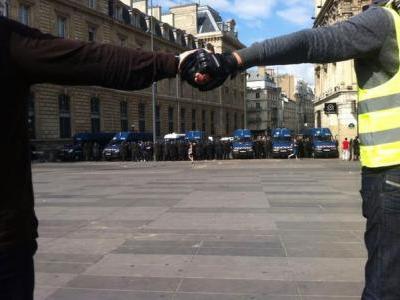
The latest form of French farce has been playing with choreographed precision against a backdrop of an intense, charged, sometimes hysterical debate about anti-Semitism in France, home to Europe’s largest Muslim and Jewish communities, where the fault lines of the Israeli-Palestinian conflict are straining the seams of an outdated national identity model struggling to come to grips with a diverse, globalized, immigrant, postcolonial populace.
The recent pro-Palestinian protests that have descended into violence fit neatly into an alarmist discourse that has focused on political Islam – heightened by the Syrian blowback – to paint a doomsday picture of an increasingly radicalized French Muslim population pitted against an increasingly victimized Jewish community. The polemic (or polémique as the French love to say) has been pushed and plugged by various pundits, politicians and ham-philosophers with their own agendas and axes to grind.
As the French authorities bumble from one ill-conceived response to another, the discourse has overlooked a complex stew of factors, including high domestic unemployment levels, weak political leadership, increased marginalization of disenfranchised groups and a rise of extreme-right populism that has targeted immigrants, the Roma community, gay rights and women’s rights activists.
Enter Bernard-Henri Lévy (BHL)
In a recent column translated and published in the Huffington Post, Bernard-Henri Lévy, France’s widely reviled, unplugged, unbuttoned public intellectual, chose to ignore the big picture, opting instead for a narrowly focused, weakly argued screed against the recent Gaza demonstrators.
In a characteristic triumph of bombast over insight, Lévy ignored the elephant in the room: a justifiable rage against a military offensive on an enclosed Palestinian enclave – despite a 2012 peace deal to lift the blockade – that has killed more than 1,000 Palestinians, mostly civilians, in one of the world’s densest slivers of land. Instead, Lévy chose to blast “those imbeciles” or “Sunday jihadists” who rally “behind cardboard Qassams” and “conflate Jews and Israelis”.
Not so, say the bulk of the protesters -- who are either members or supporters of a motley mix of trade unions, anti-capitalist parties and leftwing groups -- at the banned Gaza demonstrations in Paris.
At a July 19 demonstration in the immigrant-dominated Barbès neighborhood of Paris, protesters held signs proclaiming, “Humanistes pas antisémites” (Humanists, not anti-Semites) as the police frustrated the crowd’s attempts to march to downtown Paris at every street corner. On Place de la République on Saturday, most of the participants were at pains to denounce the “confessionnalisation” -- or introduction of religion -- in the Israeli-Palestinian discourse.
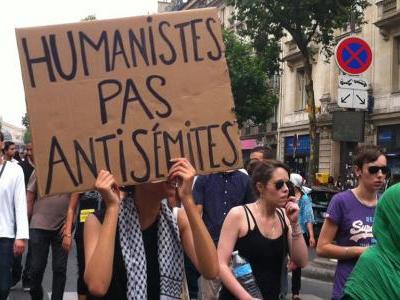
This does not mean France is free of anti-Semitism – far from it.
The Israeli drumbeat to 'make the aliyah'
The government’s current Gaza demo-banning frenzy was sparked by a July 13 confrontation between pro-Palestinian protesters and members of the Jewish Defense League that was brewing on social media sites before a virtual battle became all too real near a Paris synagogue.
At a banned demonstration in Sarcelles -- a northern Parisian suburb sometimes called “Little Jerusalem” – Jewish shops and businesses were attacked, rattling France’s Jewish community and sparking headlines such as, “France’s Jews flee as rioters burn shops, attack synagogue.”
The combination of an economic crisis, near-stagnant growth rate and high profile anti-Semitic attacks in Western Europe has indeed seen French Jews leave for Israel this year in record numbers over the past few months. The drumbeat of anti-Semitism charges against France and calls for French Jews to make aliyah -- or return to the Holy Land -- from Israeli rightwing politicians has been relentless and longstanding.
Back in 2004 -- during the height of the second Palestinian intifada, which he helped brew -- then Israeli Prime Minister Ariel Sharon urged French Jews to flee the country to escape anti-Semitism. "If I have to advocate to our brothers in France, I will tell them one thing," said Sharon. "Move to Israel, as early as possible." At that time, the government of Jacques Chirac reacted with outrage, with the French Foreign Ministry demanding “explanations about these unacceptable statements”.
Today, the Hollande administration’s response to the same charges has none of the irate, but popular, diplomatic flourishes of the Chirac era. In an extraordinarily defensive New York Times op-ed that embarrassed many Frenchmen and women, Foreign Minister Laurent Fabius and Interior Minister Bernard Cazeneuve insisted that, “France is not an anti-Semitic nation”.
Days later, French authorities made another bafflingly timorous move when the first of three Gaza demonstrations was banned, sparking exactly the sort of images that make France look like a very anti-Semitic nation indeed – as well as one that clamps down on free speech.
Conflating critics of the Israeli state with anti-Semitism is nothing new – it’s as old as the Six-Day War and will be seized by the likes of Lévy, a staunch Israel defender, until the Israeli-Palestinian conflict is sorted, which looks unlikely in the near future.
What’s new is how the government has seized this narrative to create a self-fulfilling prophesy – one that fuels a deep disquiet over the old French Muslim assimilation issue.
France’s Muslims v. France’s Jews
In a blog posted on the center-right Le Figaro newspaper site, French journalist Pierre Rousselin noted that, “The deadlock in the Middle East has long been influenced [exploited] by the more radical elements of the Muslim community,” before adding, “the ‘pro-Palestinian’ riots offer a measure of the failure to assimilate large segments of France's Muslim population.”
There you have it: the perfect French nightmare scenario of “large segments” of France’s large Muslim population – an estimated 6 million – insidiously harboring an intense hatred against their half-a-million-strong Jewish neighbors that threatens to boil over with the next spiral of the Mideast conflict. The fact that the French, Muslim or non-Muslim, are as likely to be outraged by an asymmetrical conflict that enrages people – Christian, Buddhist, Muslim, Hindu, animist or atheist – from New Zealand to Argentina is lost in the polémique of alarmist allegations and defensive responses.
French authorities have become so sensitive to anti-Semitism charges, they are now restricting free speech, which in turn only enflames passions around one of the world’s most emotionally charged conflicts. At Saturday’s demonstration, there were many signs that protesters had conflated their opposition to the Israeli occupation with their disapproval of the Hollande administration and in the case of some hardcore provocateurs, their own marginalization within French society. The signature cry at the rally was, “Israel assassin, Hollande accomplice!”
In an i24news column denouncing New York Sun editor Seth Lipsky’s controversial column, “As violent anti-Semitism rises, will France expel its Jews?” former Israeli ambassador to France Elie Barnavi suggested a number of long-term measures to address the issue, including dismantling immigrant ghettos, promoting a proactive policy of a social city mix and ensuring the formation of a [French] Muslim framework consistent with the principles of democracy. A robust, public Jewish denunciation of the excesses of Israel’s policies in the West Bank and Gaza rather than echoing the Israeli government’s talking points of Hamas human shields would also help dispel the misbegotten conflation of Jews and Israelis – even if it sparks self-hating Jew accusations by the likes of Lévy.
And by all accounts, France needs to stop banning Gaza demonstrations -- it’s not going to solve anything, it’s simply going to exacerbate the problem.

If the decades-old Israeli-Palestinian crisis has a hopelessly familiar pattern, Palestinian solidarity demonstrations across the world have also developed their own cultural markers and conventions.
But this was not London, New York, Berlin, Oslo or Sydney. This was Paris and, as the protesters and phalanxes of policemen in riot gear watching them knew all too well, things could get pretty nasty pretty soon.
Saturday’s protest against the latest deadly Israeli offensive in Gaza was the third banned protest in and around Paris. If past experience was anything to go by, this one too would descend into the usual round of clashes and arrests in a fog of tear gas – followed by the usual banner headlines and spin cycle on the airwaves in the hours and days to come.
This is what happens when Gaza demonstrations are banned in France. An authorized pro-Palestinian demonstration on July 23 saw more than 14,000 people (organizers put the figure at 25,000) marching peacefully through the heart of Paris without incident.

The lesson, if anyone was willing to listen, has been perfectly clear: authorize a protest, secure the route, provide a platform for mainstream groups and citizens to participate and it's likely to unveil in a benevolently feisty, almost festive, French way. Ban it and the moderate groups will stay away, the hardcore fringe elements will hijack the proceedings and provide the images for the next news bulletin.
But French President François Hollande’s administration has stubbornly refused to learn that lesson. And so, with choreographed certainty, Saturday’s Gaza demonstration descended into chaos. As the crowd on Place de la République grew to more than 4,000 people – with no speeches to engage them and nowhere to go – with thousands of police officials blocking the square’s exit points, the rowdies began to take over.
A group of youths, not the kind most readers would take home to dinner, climbed the statue at the center of the square and proceeded to make themselves the only show in town. Smoke flares in the colors of the Palestinian flag drew cheers from the crowd, an Israeli flag was burned to loud boos.

Flags of various nations – Algeria, France, Egypt, Turkey, Iraq – were waved. But there was also one disturbing Salafi-Takfiri black flag with the shahada printed in white. A few kids made the “quenelle” – a gesture fashioned by controversial French activist-comedian Dieudonne M’bala M’bala, which the French Interior Ministry has deemed to be linked to anti-Semitism and extremism.
On the fringes of the square, scuffles broke out as volunteers struggled to contain youths pushing toward police lines, hurling projectiles. The majority of the protesters sat it out in the middle of the square with resigned French shrugs until the tear gas wafted through and the only people left were the rioters, police, photographers and news teams. Meanwhile, on the side streets off the square, Parisians went about their business – shopping, cycling, drinking coffee – without batting their eyelids.

The latest form of French farce has been playing with choreographed precision against a backdrop of an intense, charged, sometimes hysterical debate about anti-Semitism in France, home to Europe’s largest Muslim and Jewish communities, where the fault lines of the Israeli-Palestinian conflict are straining the seams of an outdated national identity model struggling to come to grips with a diverse, globalized, immigrant, postcolonial populace.
The recent pro-Palestinian protests that have descended into violence fit neatly into an alarmist discourse that has focused on political Islam – heightened by the Syrian blowback – to paint a doomsday picture of an increasingly radicalized French Muslim population pitted against an increasingly victimized Jewish community. The polemic (or polémique as the French love to say) has been pushed and plugged by various pundits, politicians and ham-philosophers with their own agendas and axes to grind.
As the French authorities bumble from one ill-conceived response to another, the discourse has overlooked a complex stew of factors, including high domestic unemployment levels, weak political leadership, increased marginalization of disenfranchised groups and a rise of extreme-right populism that has targeted immigrants, the Roma community, gay rights and women’s rights activists.
Enter Bernard-Henri Lévy (BHL)
In a recent column translated and published in the Huffington Post, Bernard-Henri Lévy, France’s widely reviled, unplugged, unbuttoned public intellectual, chose to ignore the big picture, opting instead for a narrowly focused, weakly argued screed against the recent Gaza demonstrators.
In a characteristic triumph of bombast over insight, Lévy ignored the elephant in the room: a justifiable rage against a military offensive on an enclosed Palestinian enclave – despite a 2012 peace deal to lift the blockade – that has killed more than 1,000 Palestinians, mostly civilians, in one of the world’s densest slivers of land. Instead, Lévy chose to blast “those imbeciles” or “Sunday jihadists” who rally “behind cardboard Qassams” and “conflate Jews and Israelis”.
Not so, say the bulk of the protesters -- who are either members or supporters of a motley mix of trade unions, anti-capitalist parties and leftwing groups -- at the banned Gaza demonstrations in Paris.
At a July 19 demonstration in the immigrant-dominated Barbès neighborhood of Paris, protesters held signs proclaiming, “Humanistes pas antisémites” (Humanists, not anti-Semites) as the police frustrated the crowd’s attempts to march to downtown Paris at every street corner. On Place de la République on Saturday, most of the participants were at pains to denounce the “confessionnalisation” -- or introduction of religion -- in the Israeli-Palestinian discourse.

This does not mean France is free of anti-Semitism – far from it.
The Israeli drumbeat to 'make the aliyah'
The government’s current Gaza demo-banning frenzy was sparked by a July 13 confrontation between pro-Palestinian protesters and members of the Jewish Defense League that was brewing on social media sites before a virtual battle became all too real near a Paris synagogue.
At a banned demonstration in Sarcelles -- a northern Parisian suburb sometimes called “Little Jerusalem” – Jewish shops and businesses were attacked, rattling France’s Jewish community and sparking headlines such as, “France’s Jews flee as rioters burn shops, attack synagogue.”
The combination of an economic crisis, near-stagnant growth rate and high profile anti-Semitic attacks in Western Europe has indeed seen French Jews leave for Israel this year in record numbers over the past few months. The drumbeat of anti-Semitism charges against France and calls for French Jews to make aliyah -- or return to the Holy Land -- from Israeli rightwing politicians has been relentless and longstanding.
Back in 2004 -- during the height of the second Palestinian intifada, which he helped brew -- then Israeli Prime Minister Ariel Sharon urged French Jews to flee the country to escape anti-Semitism. "If I have to advocate to our brothers in France, I will tell them one thing," said Sharon. "Move to Israel, as early as possible." At that time, the government of Jacques Chirac reacted with outrage, with the French Foreign Ministry demanding “explanations about these unacceptable statements”.
Today, the Hollande administration’s response to the same charges has none of the irate, but popular, diplomatic flourishes of the Chirac era. In an extraordinarily defensive New York Times op-ed that embarrassed many Frenchmen and women, Foreign Minister Laurent Fabius and Interior Minister Bernard Cazeneuve insisted that, “France is not an anti-Semitic nation”.
Days later, French authorities made another bafflingly timorous move when the first of three Gaza demonstrations was banned, sparking exactly the sort of images that make France look like a very anti-Semitic nation indeed – as well as one that clamps down on free speech.
Conflating critics of the Israeli state with anti-Semitism is nothing new – it’s as old as the Six-Day War and will be seized by the likes of Lévy, a staunch Israel defender, until the Israeli-Palestinian conflict is sorted, which looks unlikely in the near future.
What’s new is how the government has seized this narrative to create a self-fulfilling prophesy – one that fuels a deep disquiet over the old French Muslim assimilation issue.
France’s Muslims v. France’s Jews
In a blog posted on the center-right Le Figaro newspaper site, French journalist Pierre Rousselin noted that, “The deadlock in the Middle East has long been influenced [exploited] by the more radical elements of the Muslim community,” before adding, “the ‘pro-Palestinian’ riots offer a measure of the failure to assimilate large segments of France's Muslim population.”
There you have it: the perfect French nightmare scenario of “large segments” of France’s large Muslim population – an estimated 6 million – insidiously harboring an intense hatred against their half-a-million-strong Jewish neighbors that threatens to boil over with the next spiral of the Mideast conflict. The fact that the French, Muslim or non-Muslim, are as likely to be outraged by an asymmetrical conflict that enrages people – Christian, Buddhist, Muslim, Hindu, animist or atheist – from New Zealand to Argentina is lost in the polémique of alarmist allegations and defensive responses.
French authorities have become so sensitive to anti-Semitism charges, they are now restricting free speech, which in turn only enflames passions around one of the world’s most emotionally charged conflicts. At Saturday’s demonstration, there were many signs that protesters had conflated their opposition to the Israeli occupation with their disapproval of the Hollande administration and in the case of some hardcore provocateurs, their own marginalization within French society. The signature cry at the rally was, “Israel assassin, Hollande accomplice!”
In an i24news column denouncing New York Sun editor Seth Lipsky’s controversial column, “As violent anti-Semitism rises, will France expel its Jews?” former Israeli ambassador to France Elie Barnavi suggested a number of long-term measures to address the issue, including dismantling immigrant ghettos, promoting a proactive policy of a social city mix and ensuring the formation of a [French] Muslim framework consistent with the principles of democracy. A robust, public Jewish denunciation of the excesses of Israel’s policies in the West Bank and Gaza rather than echoing the Israeli government’s talking points of Hamas human shields would also help dispel the misbegotten conflation of Jews and Israelis – even if it sparks self-hating Jew accusations by the likes of Lévy.
And by all accounts, France needs to stop banning Gaza demonstrations -- it’s not going to solve anything, it’s simply going to exacerbate the problem.
Tags for all blogs :
Comments or opinions expressed on this blog are those of the individual contributors only, and do not necessarily represent the views of FRANCE 24. The content on this blog is provided on an "as-is" basis. FRANCE 24 is not liable for any damages whatsoever arising out of the content or use of this blog.


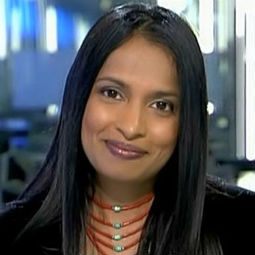

3 Comments
Post new comment